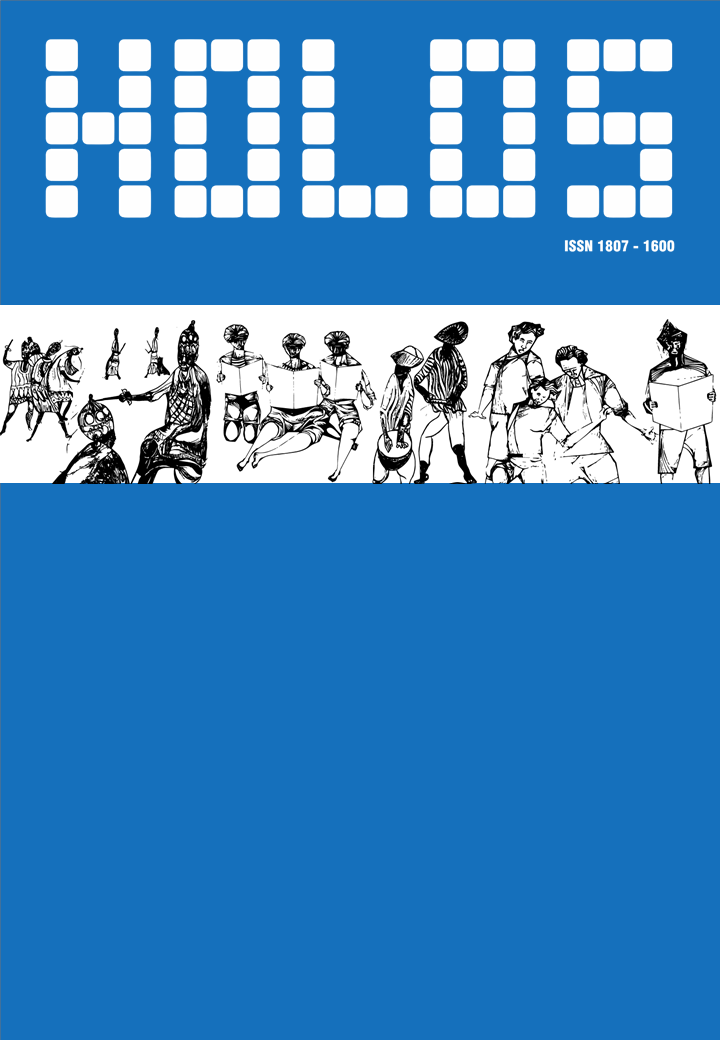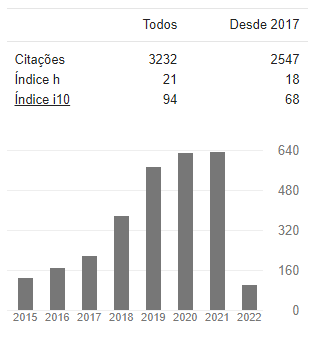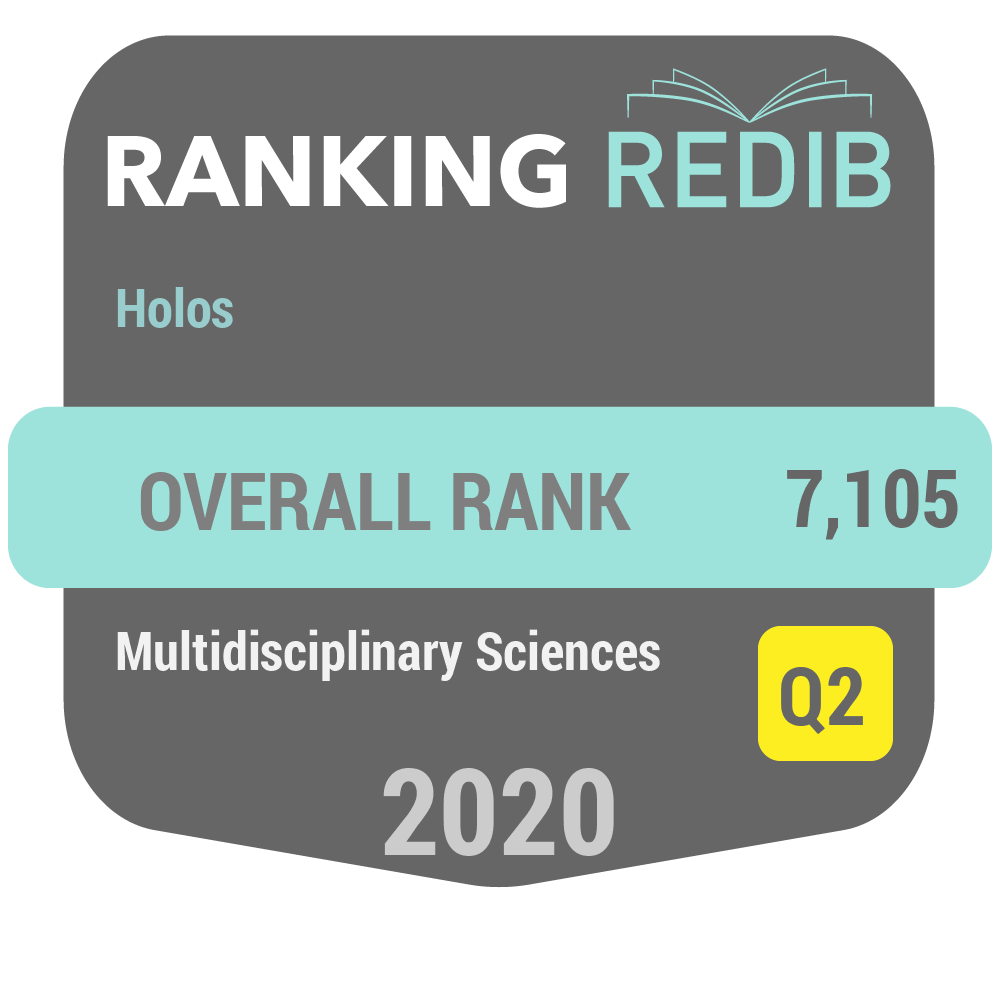ORDINARY PERSON IN MEDIA: PUBLIC INTEREST AND PROFESSIONAL EXPERIENCE
DOI:
https://doi.org/10.15628/holos.2016.4036Palavras-chave:
media discourse, ordinary person, Russia, Sweden, everyday life, similarity to lifeResumo
This paper is based on the results of the research project “Media Discourses on Material and Ethnic Gaps. A comparative study in St Petersburg and Stockholm” financed by the Foundation for Baltic and East European Studies (Sweden). One of the main sections of the project was focused on ordinary persons’ portrayal in comparison with images of so-called celebrities in the regional media. Russian and Swedish scholars used a set of methods such as content analysis of newspapers and TV, expert in-depth interviews, and focus groups (2013, Spring - Summer). In fact, common men appeared rarely in TV excerpts and newspaper articles, especially in Russia. At the same time non-commons were shown in the majority of Russian TV and print media items while Swedish media give the opposite proportions. To explain gaps between Russian and Swedish findings one needs to take into account different social and mental traditions in these countries. The difference has been revealed within expert interviews and focus groups.
Downloads
Referências
Heroes (n.d.). In: CNN Heroes. Retrieved from: http://edition.cnn.com/SPECIALS/cnn.heroes/2013.heroes/index.html
GIDDENS, A. and SUTTON, P. W. (2013). Sociology. 7th ed. Cambridge: Polity.
HARRIS, R. J. (2004). A Cognitive psychology of mass communication. 4th ed. Mahwah (New Jersey), London. Lawrence Erlbaum Associates, Inc., Publishers.
IVANOV, A. I. (2014). “Byt ili bytie? Neritoricheskie voprosy regional'noi zhurnalistike” (Spiritual vs. material life? Not rhetorical questions to regional journalism). In I. N. Blokhin and S. G. Korkonosenko (Eds.), Zhurnalistika XXI veka: K pravde zhizni (Journalism of the XXI century: Towards the truth of life). St Petersburg: St Petersburg State University; School of Journalism and Mass Communications, pp. 61-68 (in Russian).
KORKONOSENKO, S. (Ed.) (2012). Sovremennyi rossiiskii mediapolis (Modern Russian Mediapolis). St Petersburg: Faculty of Philology, St Petersburg State University (in Russian) (in Russian).
MATHESON, D. (2005). Media Discourses: Analysing Media Texts. Maidenhead: Open University Press.
MOORES, SH. (2000). Media and Everyday Life in Modern Society. Edinburgh: Edinburgh University Press.
NORDENSTRENG, K. and PIETILÄINEN, Ju. (1999). Normative theories of the media: Lessons from Russia. In: Ya. N. Zassoursky & E. Vartanova (Eds.), Media, communications and the open society. Moscow: Faculty of Journalism/Publisher IKAR, p. 146-159.
NORDENSTRENG, K. (2010). The Russian media system: Something special? In: E. Vartanova (Ed.), Content, channels and audiences in the new millennium: Interaction and interrelations. Moscow: Faculty of Journalism, Lomonosov Moscow State University, p. 183-186.
PAL'VELEVA, L. (2011). Prostoi chelovek (Simple person). Radio «Svoboda», 24 April. Retrieved from: http://www.svoboda.org/articleprintview/9503411.html (in Russian).
PERVYI festival' “Geroi nashego vremeni” (First festival "Hero of our time") (2007). Retrieved from: http://www.nat.ru/?an=heroes_2007 (in Russian).
PÖTTKER, H. (2010). What kind of European Council? Publicness as the underlying principle in journalistic self-regulation for all of Europe. In: H. Pöttker and Ch. Schwarzenegger (Eds.), Europäische Öffentlichkeit und journalistische Verantwortung (European community and journalistic responsibility). Köln: Halem, p. 351-364.
RABI Robsky, obkolotie Koelio (Slaves of Robski are infected by Coelho) (2009). Argumenti i Facti, 9 September. Retrieved from: http://www.aif.ru/society/article/29249 (in Russian).
REIFOVÁ, I. and PAVLÍ?KOVÁ, T. (2013). Invisible audiences: Structure and agency in post-socialist media studies. Mediální studia, n. II, p. 130-136.
RÜBSAMEN, M. (2011). Approaching celebrity – Sketching an analytical framework. In: I. T. Trivundža, N. Carpentier, H. Nieminen, et al. (Eds.), Critical perspectives on the European mediasphere. The intellectual work of the 2011 ECREA European media and communication doctoral summer school. Ljubljana: Faculty of Social Sciences: Založba FDV, p. 95-104.
SILVERSTONE, R. (1994). Television and Everyday Life. London and New York: Routledge.
SILVERSTONE, R. (2007). Media and morality: On the rise of the mediapolis. Cambridge, England: Polity Press.
SVITICH, L. G. and ZASOURSKIY, Ya. N. (Eds.) (1988). Rabochaya kniga redaktora raionnoi gazety: Opyt, metodiki, rekomendacii (Workbook of the editor of the local newspaper: Experience, techniques, recommendations). Moscow: Mysl' (in Russian).
TITOV, A. (2012). Ot kommercializacii k sociozhurnalistike? Scenarii razvitiya na primere russkoyazychnyh pechatnyh SMI Estonii (From commercialization to socio journalism? The development scenario on the example of Russian-speaking print media of Estonia). In: O. Savinova (Ed.), SMI i duhovnaya zhizn' obshestva (Mass media and spiritual life of society). Nizhny Novgorod: Lobachevsky State University of Nizhni Novgorod, p. 23–34 (in Russian).
TURNER, G. (2010). Ordinary people and the media: The demotic turn. London: SAGE Publications Ltd. doi: http://dx.doi.org/10.4135/9781446269565.









































